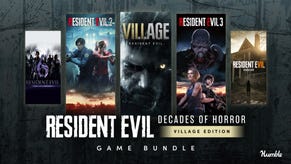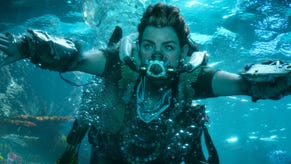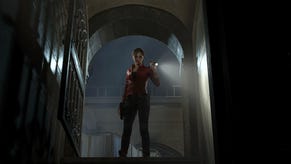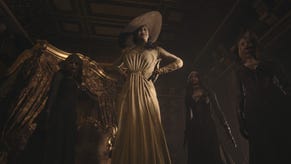Resident Evil 7: What's Next for the Franchise?
Capcom has taken the Resident Evil series back to basics, but where does it go next?
This article first appeared on USgamer, a partner publication of VG247. Some content, such as this article, has been migrated to VG247 for posterity after USgamer's closure - but it has not been edited or further vetted by the VG247 team.
Last week, Capcom delivered its latest entry in the Resident Evil franchise. Following the critical and fan reception of Resident Evil 6, Capcom decided to revisit what "survival horror" meant. Resident Evil 7 is the result, a game that looks different from any other entry in the franchise, but plays like classic Resident Evil titles. The major difference is a focus on horror, over the action that marked Resident Evils 4, 5, and 6.
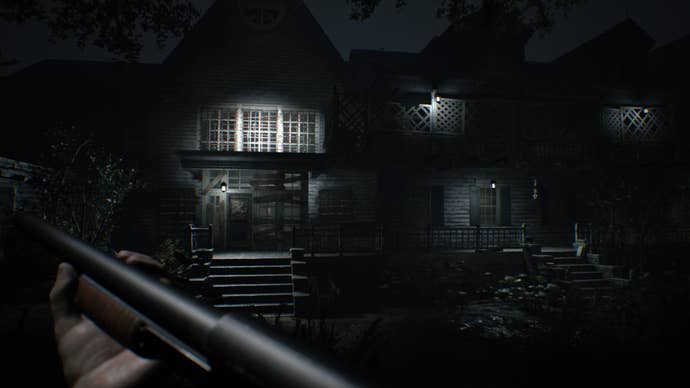
"Resident Evil 7 definitely draws influence from its predecessors, but probably has most in common with the original game. At its core, RE7 is also like the other RE games in that it is still a game centered on elements of fear and being able to overcome it," Resident Evil 7 producer Masachika Kawata told VentureBeat.
So far, Resident Evil is off to a solid start. According to the official Resident Evil site, the game has 948,388 players one week after launch. Capcom also announced that it has shipped 2.5 million copies to retailers. That's far below the lifetime sales of other Resident Evil games, but it's a good foundation to build on.
Where does the franchise go now?

Sticking To The New (Old) Direction
Resident Evil 7 works largely because despite the drastic shift in perspective to first-person, it still plays like a Resident Evil game. General combat, exploration, puzzle-solving, and that B-movie narrative style are all strong in the title. Are there some issues here and there? Sure, especially in the areas of enemy variety and exploration.
The Bakers are strong villains and the Molded are initially quite scary, but Resident Evil 7 overall lacks the enemy variety of some previous entries. Especially given the Louisiana Bayou location, there was more room to play around with the local wildlife to create some new classics. Mutating Molded versions of alligators, snakes, coyotes, or even the plant life would've been welcome.
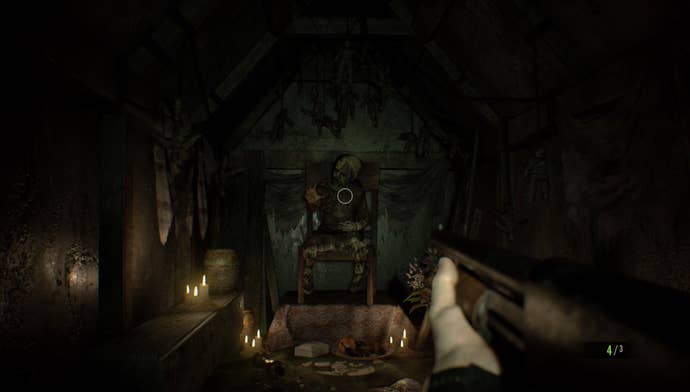
Likewise, the game's exploration aspect is very strong in the first half of the game, but tapers off whe it's time to explain what's happening and deliver the climax. I can't say this is only a problem with Resident Evil 7, as older Resident Evil titles have also offered up a convincing illusion of non-linearity, only to drop that towards the end. I understand that building strong tension is sometimes at odds with letting a player explore randomly. I just wish Resident Evil 7 had a bit more exploration.
Capcom will likely continue with what was started here. I think they could have something really special if they crafted a Resident Evil 2 to RE7's Resident Evil. Something bigger and beefier than what was delivered here. I liked much of Resident Evil 7, I just wanted more of it. More space to explore, more escape room action, more enemy variety. To me, that's a sign of a good game and it's something Capcom can deliver on.
Plus, I still need to know what's going on with Ethan, the ongoing biocorporation conflict, and perhaps a check-in on some veteran Resident Evil characters.
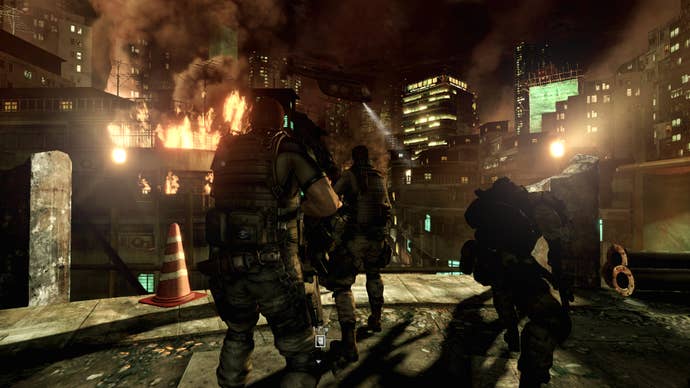
Action Is The Way To Go
Let's be perfectly honest, it's likely that an action focused Resident Evil would've had a larger audience than one focused on horror. Resident Evil 5 and Resident Evil 6 may have disappointed some fans of survival horror (the latter more than the former), but their sales cannot be denied. Resident Evil 5 is Capcom's best-selling game of all time, with 7.1 million copies sold. Resident Evil 6 sold 6.6 million units. Even Resident Evil 4 is up there with 5.9 million if you add up all the various versions released (GameCube: 1.6 million, PS2: 2.3 million, Wii: 2 million).
In contrast, the highest selling of the horror strain of the franchise is Resident Evil 2 with 4.96 million. Resident Evil 3: Nemesis has 3.5 million sold, followed by Resident Evil with 2.75 million. The rest of the games float around 1 to 1.5 million. Hell, even the action-oriented Resident Evil: Operation Raccoon City is within spitting distance of the horror side with 2.5 million copies sold, and that's not a great game.
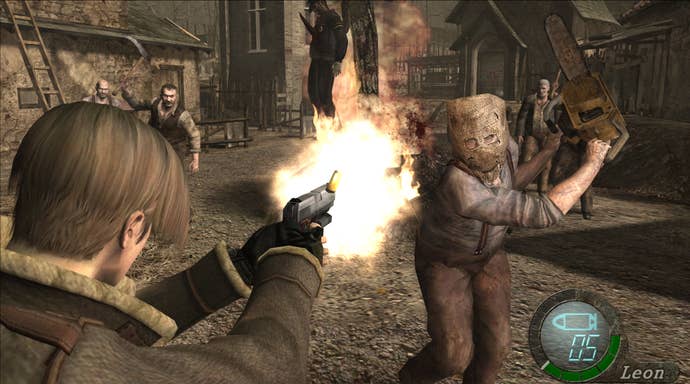
Even Capcom acknowledges that Resident Evil 6 was a commercial success.
"From a business perspective, Resident Evil 6 was a success, but we had pushed that style of Resident Evil gameplay, with the big storyline and the hero characters, pretty much as far as we could," Kawata told GamesIndustry.biz. "It was a blockbuster scale of game. That almost left us with no choice but to change the series in order to keep it alive, because where do you go after that size and scale of game?"
Resident Evil 7 was a play for the soul of the franchise, instead of a financial consideration. It's possible that a more action-oriented (third-person?) version of the game might be the way forward. That style certainly has its fans, and it's likely Capcom could make more money heading in that direction or making a spin-off in that style. They even have the Revelations line of gamesjust sitting there if Capcom wants to keep making action games. It'd be an odd switch given that Revelations carried the DNA or RE1, 2, and 3 forward, but the subtitle is available, so why not use it?
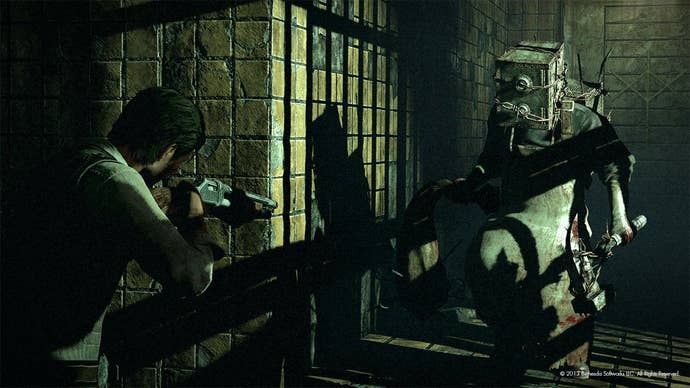
It's worth noting that former Resident Evil and Resident Evil 4 director Shinji Mikami is currently offering that style of game from his own studio, Tango Gameworks. The Evil Within is the spiritual successor to everything that Resident Evil 4 was. I think, like Resident Evil 7, that the game stumbled, but it's also fertile ground to build on. The Evil Within launched in 2014 and had the highest-selling first month sales for a "new survival-horror IP". (It was dethroned a year later by Dying Light.) We are about due for a sequel to that game and Bethesda Softworks president Pete Hines has said the game sold well enough for another entry.
"I do think both The Evil Within and Rage did well enough that we could make sequels," Hines told Finder.
So there's hope for that style of play, if that's your poison.
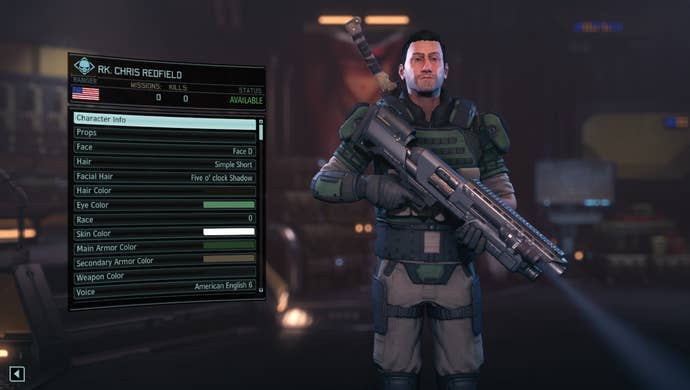
Something Completely Different
This is unlikely, but there's also option to make something completely new. The direction of the franchise is rather open, depending on how Resident Evil 7 performs in the end.
Capcom could keep the first-person viewpoint, but aim for far more action, bringing it closer to something like Monolith's F.E.A.R. They could carve a new niche out from the hardcore Dark Souls fandom, building a tougher game with deliberate combat based around guns and modern weapons, instead of medieval weapons and magic. The online-only Umbrella Corps flopped hard, but there's nothing saying Capcom couldn't try again in that space.
Like many major franchises, Resident Evil is rather malleable. There's room to go in different directions. I want more of Resident Evil 7, you may want more of Resident Evil 6, and someone else may be hoping for an XCOM-style game based in the Resident Evil universe. I can take bets on where the franchise will go next, but honestly, it's anyone's guess.
What would you like to see from Resident Evil in the future?



